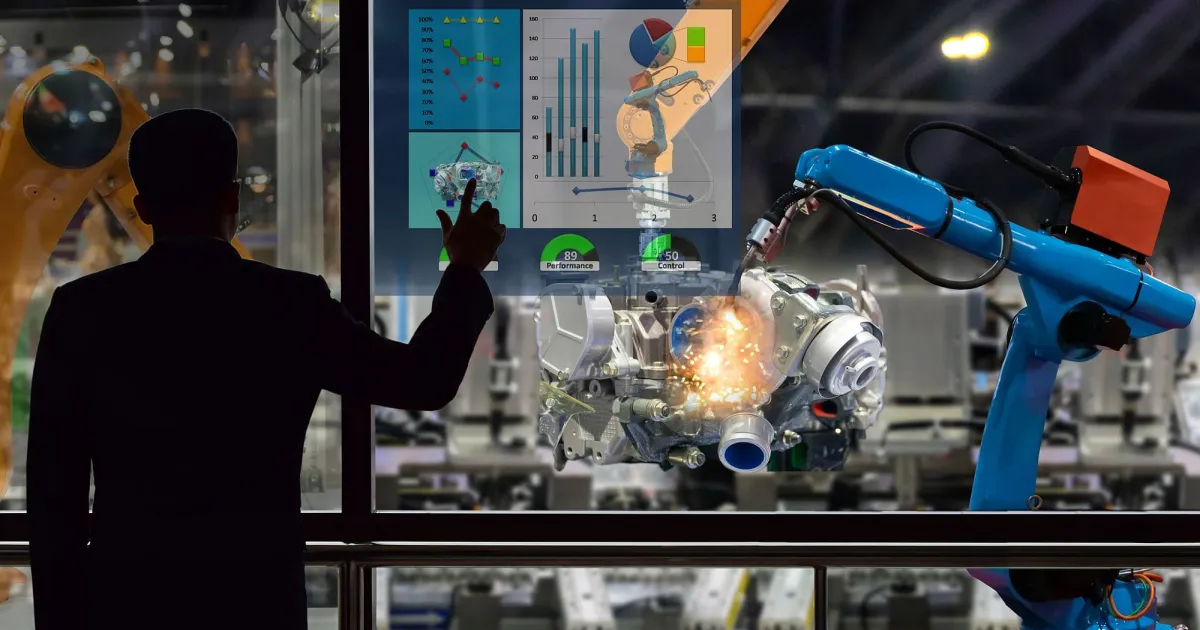In today’s rapidly evolving industrial landscape, the integration of AI in production optimization is becoming increasingly crucial. This technological advancement is not just a buzzword; it is a transformative force reshaping how industries operate. From reducing waste to enhancing productivity, AI’s role in manufacturing processes is undeniably pivotal.

The Role of AI in Modern Manufacturing
Manufacturing has always been at the forefront of technological innovation. The introduction of AI has further accelerated this trend. By leveraging AI-driven insights, companies can make informed decisions that lead to better resource management and enhanced operational efficiency.
Improving Quality Assurance
AI technologies have significantly improved automated quality checks. These systems can identify defects with precision, ensuring that only the highest quality products reach consumers. This not only saves time but also reduces costs associated with product recalls and rework.
Enhancing Predictive Maintenance
Predictive maintenance is another area where AI shines. By analyzing data from various sensors and machinery, AI can predict when equipment is likely to fail. This allows for timely maintenance, reducing downtime and extending the lifespan of machinery.
AI-Driven Process Optimization
The use of AI in production optimization goes beyond quality assurance and maintenance. By analyzing vast amounts of data, AI systems can identify bottlenecks and inefficiencies within production lines. This allows manufacturers to streamline processes and maximize output.
Reducing Waste
One of the significant benefits of AI integration is its ability to minimize waste. By optimizing production processes, AI ensures that resources are used efficiently, reducing material wastage and promoting sustainability.
Boosting Productivity
AI-driven systems can operate continuously without fatigue. This leads to increased production rates and improved consistency in output. By automating repetitive tasks, workers can focus on more complex activities, further enhancing productivity.
Challenges in Implementing AI
While the benefits of integrating AI into production are clear, there are challenges that industries face. These include the initial cost of implementation, the need for skilled personnel, and potential resistance to change from the workforce.
Cost of Implementation
The initial investment required for AI technology can be substantial. However, the long-term benefits often outweigh these costs, leading to increased efficiency and profitability.
Need for Skilled Workforce
AI systems require skilled personnel for implementation and maintenance. This necessitates training programs and the hiring of experts, which can be a significant undertaking for some companies.
Resistance to Change
Change can be challenging for any organization. Employees may resist new technologies due to fear of job loss or unfamiliarity. Addressing these concerns through education and transparent communication is crucial for successful AI integration.
Future of AI in Production
The future of AI in production optimization is promising. As technology continues to evolve, AI systems will become more advanced, offering even greater benefits to manufacturers. The potential for AI to revolutionize the industry is immense, with new applications and innovations on the horizon.
AI and Sustainability
Sustainability is becoming a key focus for many industries. AI can play a vital role in promoting sustainable practices by optimizing resource use and reducing environmental impact.
Continuous Improvement
AI systems are designed to learn and adapt over time. This allows for continuous improvement in production processes, leading to ongoing enhancements in efficiency and quality.
Conclusion
In conclusion, the integration of AI in production optimization is revolutionizing the manufacturing industry. By improving quality assurance, enhancing predictive maintenance, and optimizing processes, AI is paving the way for a more efficient and sustainable future. Embracing this technology is not just a competitive advantage; it is a necessity for industries looking to thrive in the modern era.

FAQ
What are the benefits of AI in production optimization?
AI offers numerous benefits in production optimization, including improved quality assurance, predictive maintenance, reduced waste, and increased productivity. By streamlining processes and making data-driven decisions, AI enhances overall operational efficiency.
What challenges do companies face when implementing AI?
Companies may face challenges such as the initial cost of implementation, the need for skilled personnel, and resistance to change from employees. Addressing these challenges through training and transparent communication can facilitate successful AI integration.
How does AI contribute to sustainability in manufacturing?
AI contributes to sustainability by optimizing resource use and reducing material wastage. By promoting efficient production processes, AI helps minimize the environmental impact of manufacturing activities.
Is AI in production optimization the future of manufacturing?
Yes, AI in production optimization is the future of manufacturing. As technology advances, AI systems will become more sophisticated, offering even greater benefits to industries. The potential for AI to revolutionize manufacturing is vast, with continuous improvements and innovations on the horizon.
For more insights on AI in manufacturing, visit Straive.
This article contains affiliate links. We may earn a commission at no extra cost to you.

